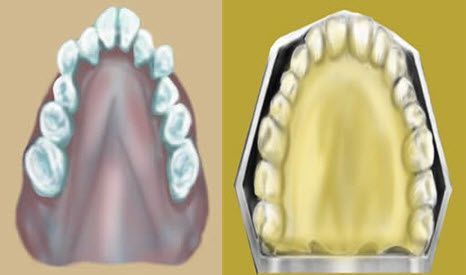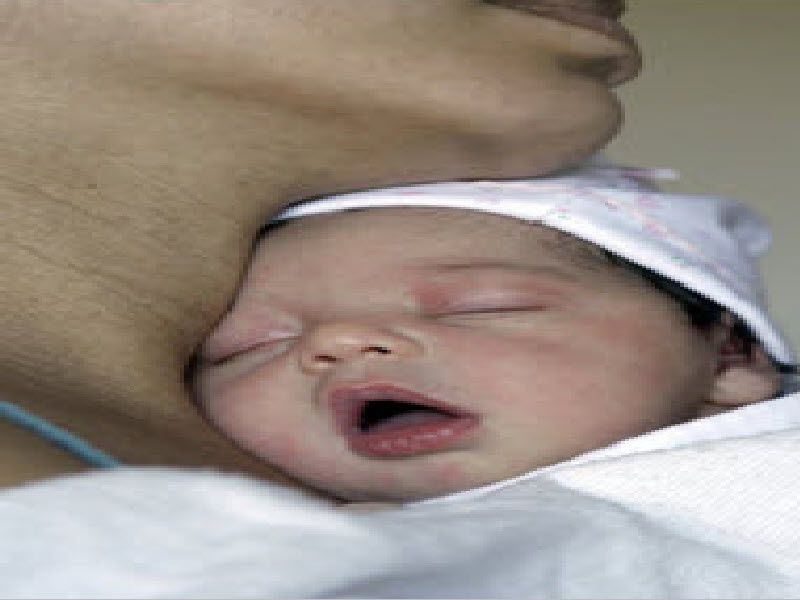This week I finally learned the answer to my long-held question of why any healthy-seeming infant would be mouth breathing so young, since we humans are obligate nose breathers. Babies' mouths are supposed to remain closed unless they're feeding or vocalizing. Since I've been a breathing educator, it's really concerned me when I see friends' babies -- or kids in advertising photos -- with their mouths wide open at rest.
In honor of "International Nose Breathing Week", I called respected speech-language pathologist Diane Bahr, author of Nobody Ever Told Me (Or My Mother) That! Everything From Bottles and Breathing To Healthy Speech Development, and she kindly agreed to an interview.
The Main Reason Infants Typically Mouth Breathe
Diane told me that one common reason for infant mouth breathing is that premature babies and others who need life-sustaining medical intervention after birth get used to feeding tubes and other essential equipment sitting in their mouths and their mouths remaining open.
Diane's own grandson remained in the hospital for 17 days after birth and after that short period of time she recognized his palate -- the roof of the mouth that forms the bottom of the nose -- was developing smaller than it should, foretelling dysfunctional breathing issues if left uncorrected.
Children will also mouth breathe if there is anything in the way of nose breathing such as nasal congestion or enlarged tonsils/adenoids. Children with low muscle tone often mouth breathe because they have difficulty holding their jaws closed against the force of gravity. And, children who are mostly on their backs, moving from container to container, usually don’t have the opportunity to properly develop the muscles in the body including the jaw.
Talk To Your Doctor About Ear, Nose & Throat Issues If Your Baby Was Hospitalized Or Is Mouth Breathing
Luckily Diane and her daughter, the baby's mother, are both speech-language pathologists, and Diane has even written a textbook about oral-motor assessment and treatment.
She explained how she teaches parents to do oral massage, employ mouth toys and facilitate other specific proactive oral and feeding interventions to widen the palate and keep jaw growth on track. This can be done after you make sure there are no obstructions, with an exam with an ear, nose and throat doctor.
Babies and toddlers who use pacifiers constantly or beyond 10 months of age, or drink from a bottle long-term, will probably also need this type of therapy, she said.
The good news is that with awareness and a little education about what to do, families can likely avert the structural issues that contribute to lifelong mouth breathing with the resulting typical dysfunctional-breathing patterns that can be associated with asthma, allergies, snoring and anxiousness.
Characteristics of children who mouth breathe include:
- narrow faces
- a high, narrow palate that impinges on the nasal and sinus areas, making them different to clear. (This affects airway development, and a smaller airway can lead to lifelong breathing-related issues if not addressed.)
- frequent upper-respiratory illness
- low forward tongue-resting position
- tongue-thrust swallow
- dental malocclusion, which means the need for costly braces down the line

To listen to the complete interview, clickhere.
To see more from Diane Bahr, her website is http://www.agesandstages.net.
Breathing Retraining Center offers individual and group training and coaching on self-management techniques to identify and correct poor-breathing habits. Breathing Retraining Center's educational products, courses and coaching are designed to improve breathing skills for people whose issues may be related to habits that have the potential to be improved, as a self-care/wellness activity. Breathing difficulty may be a warning sign of a life-treatening heart or lung condition, infection or other illness. Always check with your doctor about your own situation.
The Buteyko Breathing Technique and other breathing-retraining strategies we teach are an alternative approach and are not the practice of medicine, psychology or a form of psychotherapy, nor are they a substitute for seeking medical or psychological advice from an apporpriate professional health-care provider. We want to make the important distinction between using the Buteyko Breathing Technique and other breathing-retraining strategies for health and well-being and the practice of medicine, psychology or any other licensed health-care profession.
Breathing classes, coaching and other services from Breathing Retraining Center are offered by teachers who are not licensed by the State of California as physicians or other healing-arts practitioners unless so noted. We offer alternative non-medical/non-psychological techniques and our services are considered to be laternative or complementary to the healing arts that are licensed by the State of California.
.png)
